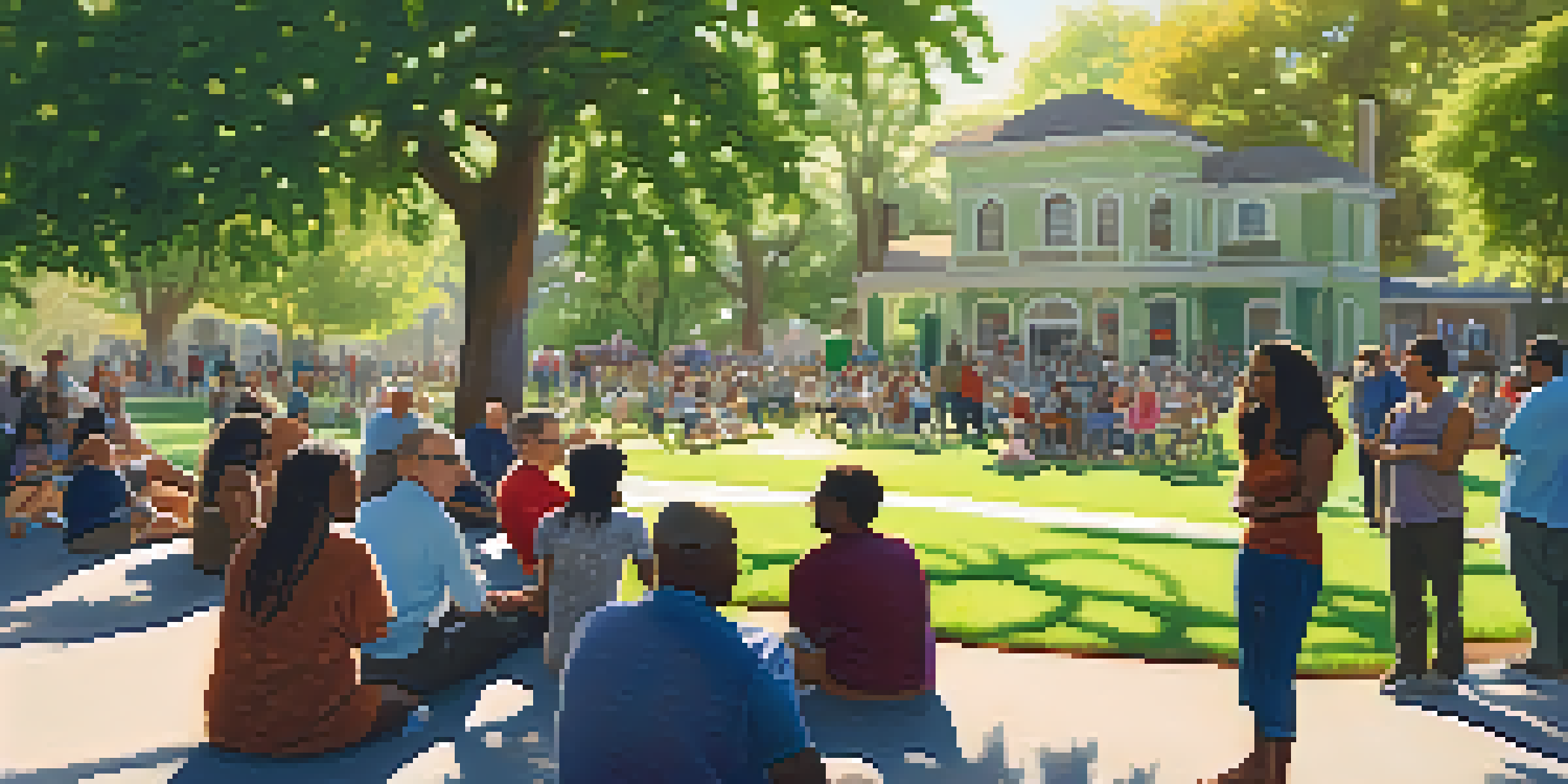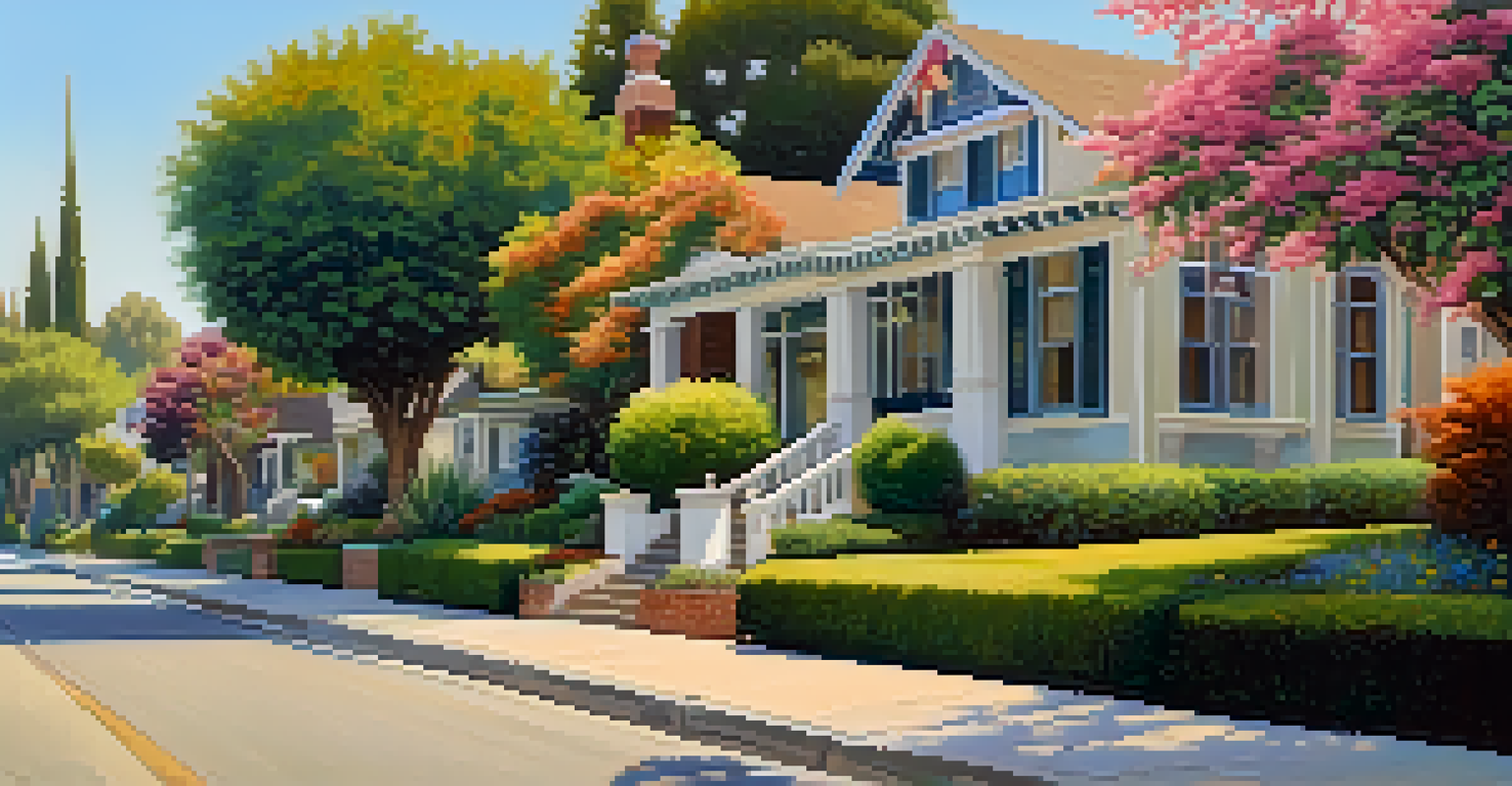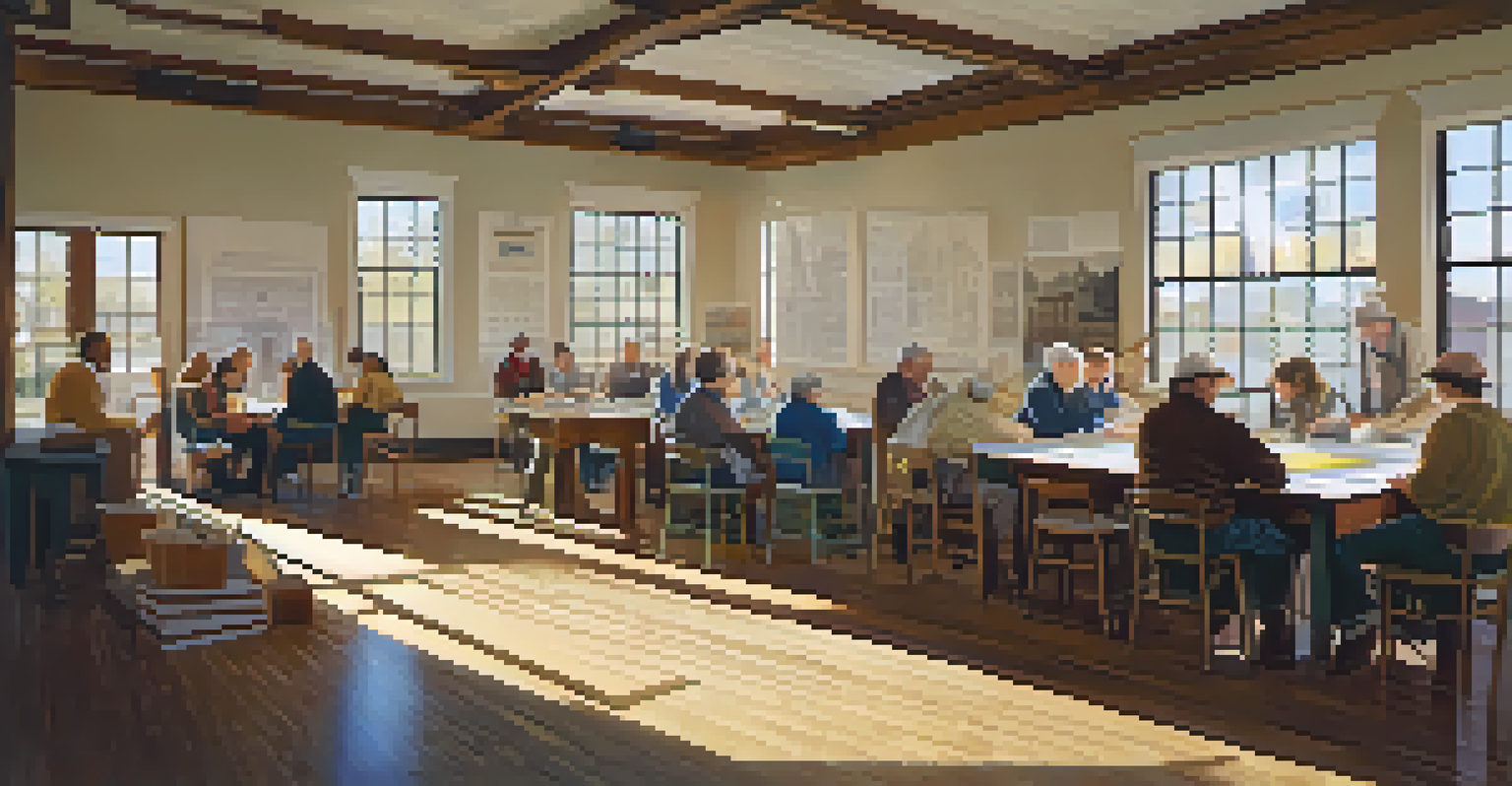The Role of Pasadena's Neighborhood Associations in Preservation

Understanding Pasadena's Neighborhood Associations
Pasadena's neighborhood associations are grassroots organizations that empower residents to engage in local governance. These groups serve as a voice for community concerns and foster a sense of belonging among neighbors. By bringing people together, they create a platform for discussing issues like preservation, zoning, and community development.
Preservation is a form of empowerment, giving communities a voice in the story of their own history.
These associations are made up of volunteers who dedicate their time to enhance their neighborhoods. They often host meetings, organize events, and communicate with local officials to advocate for their interests. This level of community involvement is crucial in ensuring that residents have a say in how their neighborhoods develop over time.
In essence, neighborhood associations act as the connective tissue between residents and local government. They play a vital role in ensuring that the unique character of Pasadena is maintained through active participation and dialogue. Their impact on preservation efforts is profound, helping to shape policies that reflect the community's values.
Advocacy for Historic Preservation
One of the primary roles of neighborhood associations is advocating for historic preservation. Pasadena is rich in history, with numerous buildings and landmarks that reflect its unique character. These associations work tirelessly to ensure that these historical sites are recognized, protected, and maintained for future generations.

Through organized campaigns and public outreach, they educate residents about the importance of preserving their local heritage. This can include hosting events that celebrate historical architecture or providing resources on how to nominate a property for historic designation. By raising awareness, they foster a community that values and prioritizes preservation.
Empowerment Through Neighborhoods
Pasadena's neighborhood associations empower residents by giving them a platform to engage in local governance and advocate for community issues.
Additionally, these associations often collaborate with local government and preservation organizations to influence policy decisions. Their advocacy efforts can lead to the creation of historic districts, zoning laws that protect architectural integrity, and funding opportunities for restoration projects. This collaborative approach is key to successful preservation efforts in Pasadena.
Community Engagement and Education
Neighborhood associations play a crucial role in engaging the community in preservation efforts. They organize workshops, lectures, and community walks that educate residents about the historical significance of their surroundings. This not only fosters appreciation but also encourages active participation in preservation initiatives.
The future belongs to those who believe in the beauty of their dreams.
By providing platforms for discussion, these associations help residents voice their concerns and share their ideas. This democratic process ensures that preservation efforts reflect the needs and desires of the community, rather than being dictated by external forces. An engaged community is more likely to protect its heritage.
Moreover, these associations often partner with local schools and educational institutions to incorporate preservation into curricula. This generational approach helps instill a sense of pride and responsibility for local history in younger residents, ensuring that the values of preservation continue long into the future.
Collaboration with Local Authorities
Collaboration between neighborhood associations and local authorities is essential for effective preservation efforts. These partnerships can lead to more informed decision-making regarding zoning laws, building permits, and development projects. By working together, both entities can create a balanced approach that respects historical integrity while accommodating growth.
Neighborhood associations often serve as liaisons between residents and city officials. They can relay community concerns about proposed developments, ensuring that preservation is a priority in urban planning discussions. This communication fosters a sense of transparency and trust between the community and local government.
Advocacy for Historic Sites
These associations play a crucial role in advocating for the preservation of Pasadena's rich historical heritage through community engagement and collaboration with local authorities.
Furthermore, when associations collaborate with local authorities, they can leverage resources and expertise to enhance preservation initiatives. This can include joint funding for restoration projects or shared access to historical preservation consultants. Such partnerships ultimately benefit the community as a whole.
Challenges Faced by Neighborhood Associations
Despite their vital role, neighborhood associations often face challenges in their preservation efforts. Limited resources and volunteer fatigue can hinder their ability to mobilize community support and organize initiatives. As these organizations rely heavily on community involvement, maintaining enthusiasm and participation is crucial.
Additionally, they may encounter resistance from developers or local government officials who prioritize economic growth over preservation. This can lead to tensions and conflicts, making it difficult for associations to advocate effectively for their communities. Navigating these challenges requires diplomacy and persistence.
Moreover, the evolving nature of communities can also pose challenges. New residents may not share the same appreciation for historical preservation, leading to differing opinions on what should be maintained. Associations must continually educate and engage their communities to bridge these gaps and foster a united front for preservation.
Success Stories in Pasadena's Preservation Efforts
Pasadena's neighborhood associations have achieved notable successes in preservation that highlight their importance. One example is the preservation of the iconic Gamble House, a masterpiece of the Arts and Crafts movement. Local associations rallied community support to protect this landmark, ensuring its continued accessibility to the public.
Another success story is the establishment of historic districts, where neighborhood associations played a pivotal role in advocating for protection. These districts not only preserve architectural integrity but also promote neighborhood pride and identity. Residents find value in living in areas recognized for their historical significance.
Facing Challenges Together
Despite facing challenges like limited resources and differing community opinions, neighborhood associations continue to strive for effective preservation efforts in Pasadena.
Through these victories, neighborhood associations demonstrate the power of community action in preservation. They show that when residents come together with a shared vision, they can have a significant impact on maintaining the character and history of Pasadena.
Looking Ahead: The Future of Preservation in Pasadena
As Pasadena continues to grow and evolve, the role of neighborhood associations in preservation will be more crucial than ever. With rapid development and changing demographics, these organizations must adapt to new challenges while staying true to their mission. This may involve innovative strategies to engage younger residents and newcomers in preservation efforts.
Moreover, technology offers new avenues for advocacy and education. Neighborhood associations can utilize social media campaigns, virtual meetings, and online resources to reach a wider audience and foster community involvement. Embracing these tools will help them stay relevant in a fast-paced world.

Ultimately, the continued success of preservation efforts in Pasadena hinges on the commitment and passion of its residents. As long as neighborhood associations remain dedicated to their mission, the rich history and character of Pasadena will endure for generations to come.